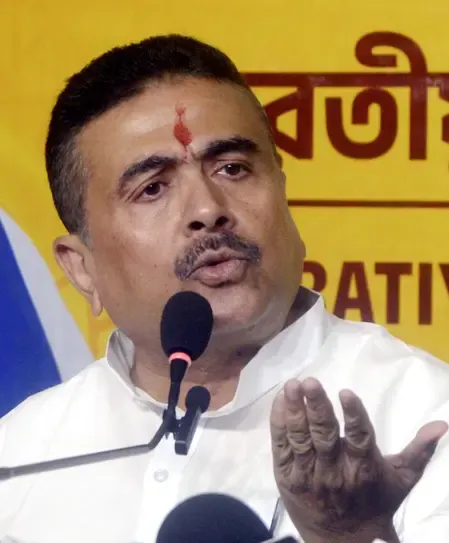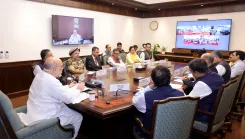Is a Contempt Plea Against Bengal Speaker Over CM Mamata’s Security Exemption Justified?

Synopsis
Key Takeaways
- Contempt of court petition filed by Suvendu Adhikari against Assembly Speaker.
- Accusation of granting security exemption to CM Mamata Banerjee.
- Previous court ruling prohibits personal bodyguards in assembly.
- Legal proceedings are set to continue in Calcutta High Court next week.
- Opposition calls for preservation of CCTV footage as evidence.
Kolkata, Sep 11 (NationPress) The West Bengal Leader of Opposition, Suvendu Adhikari, has filed a contempt of court petition against Assembly Speaker Biman Bandopadhyay in the Calcutta High Court. This action stems from the Speaker allegedly granting a security exemption to Chief Minister Mamata Banerjee, which is claimed to violate a prior court ruling.
In his petition, Adhikari asserts that the Speaker's allowance for the Chief Minister to access the assembly premises accompanied by personal bodyguards contravenes a clear judicial directive. The case has been assigned to the single-judge bench of the Calcutta High Court and is poised for a hearing next week.
Recently, a ruling from a single-judge bench led by Justice Amrita Sinha emphasized that no legislator could enter the assembly premises with personal bodyguards, citing existing legal provisions.
Despite this, the Speaker clarified that the prohibition would apply to all legislators, irrespective of their party, while the Chief Minister would be granted an exemption from this rule.
On Monday, Adhikari approached Justice Sinha’s bench, arguing that the Speaker’s exemption for the Chief Minister constitutes contempt of court, given the prior stipulation that no legislator is permitted to enter the assembly with personal bodyguards.
He contends that all legislators, regardless of whether they belong to the ruling or opposition parties, should hold equal standing in the Assembly, asserting that no member—including the Chief Minister—should receive preferential treatment concerning assembly regulations.
Consequently, the Speaker’s decision to permit CM Banerjee to enter the Assembly with personal bodyguards has been labeled as contempt of court.
Justice Sinha has allowed the Leader of the Opposition to submit the petition, with proceedings expected to occur next week.
Additionally, the Opposition's legal team has requested the High Court to instruct the Assembly authorities to secure the CCTV footage to serve as evidence during the hearings.







